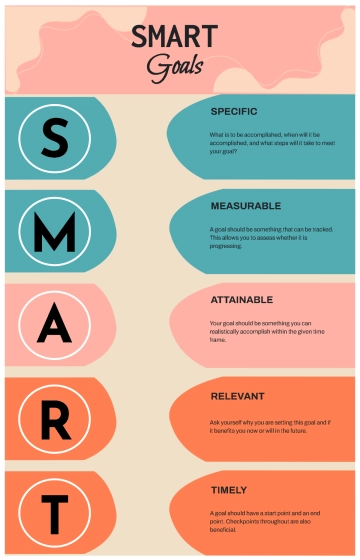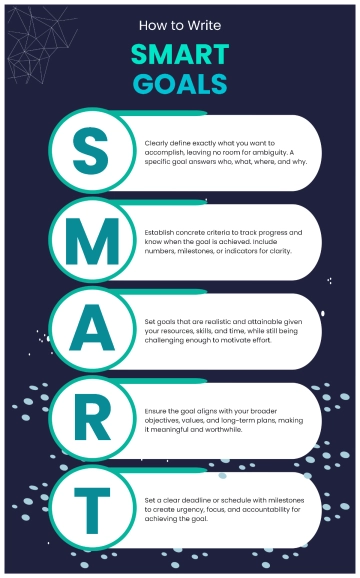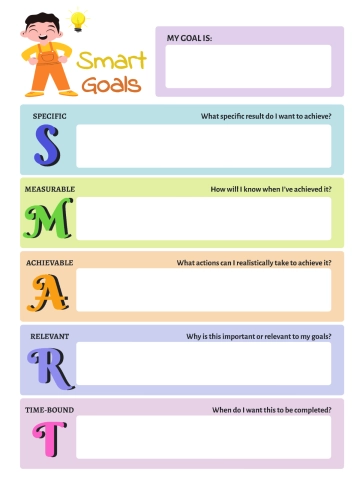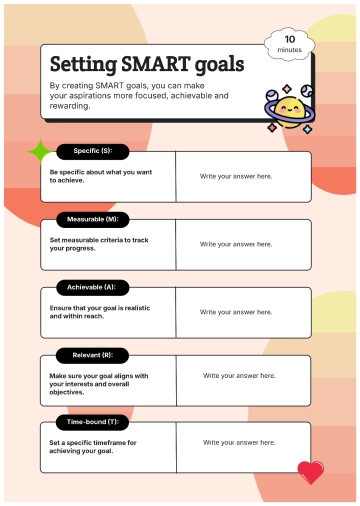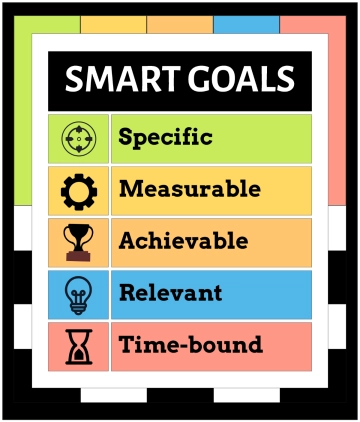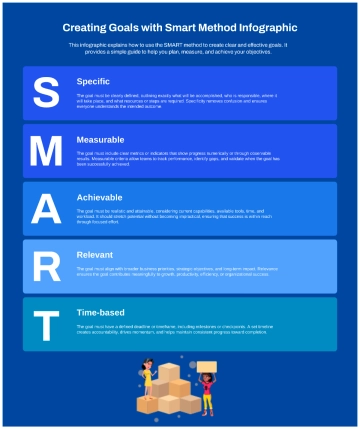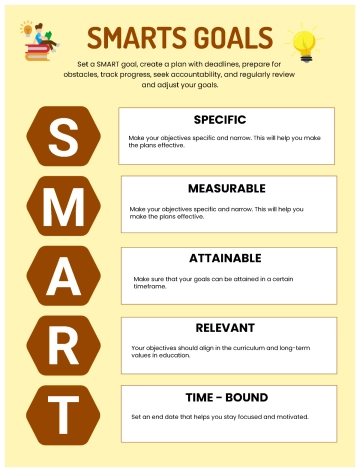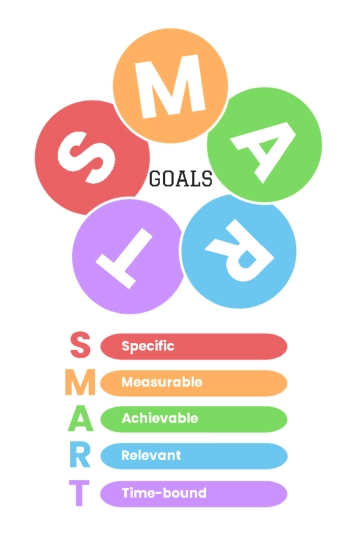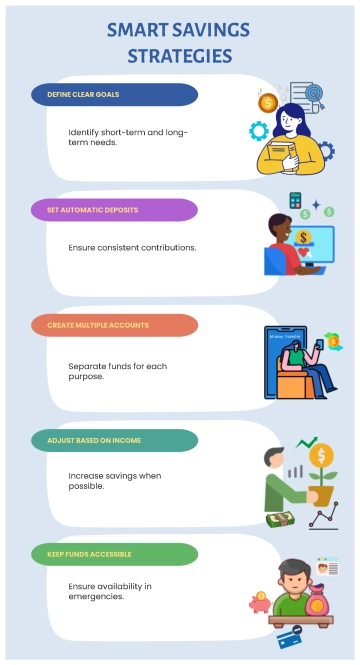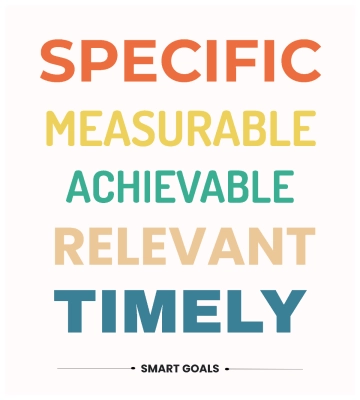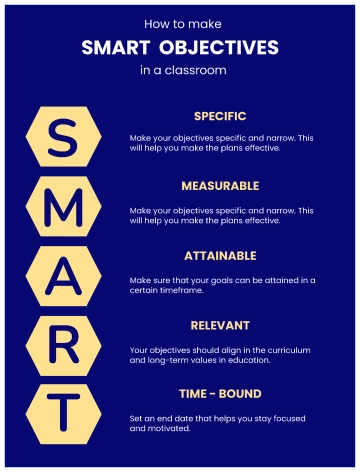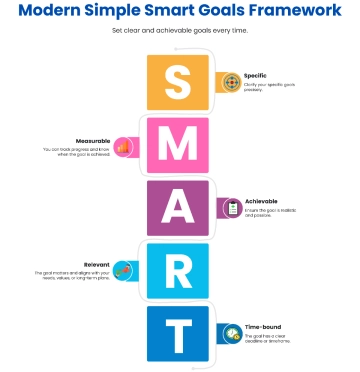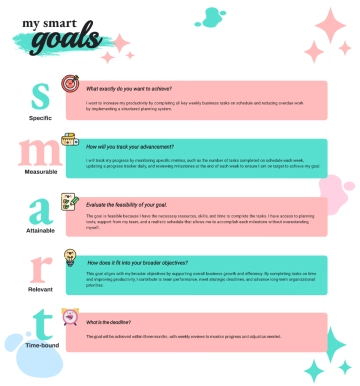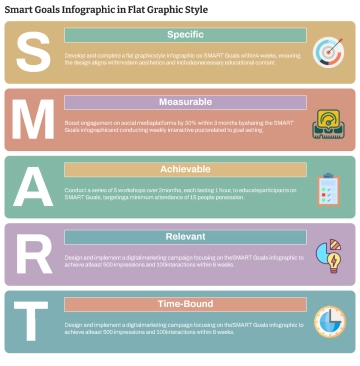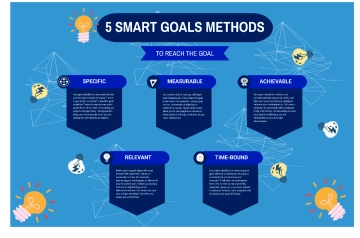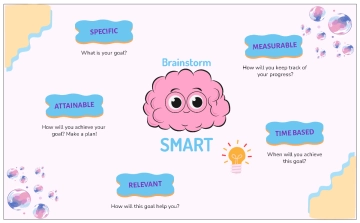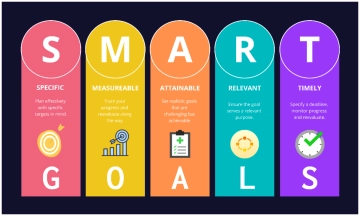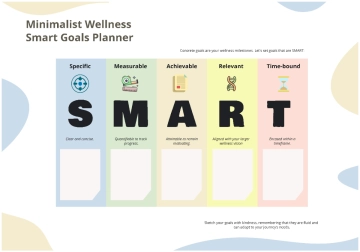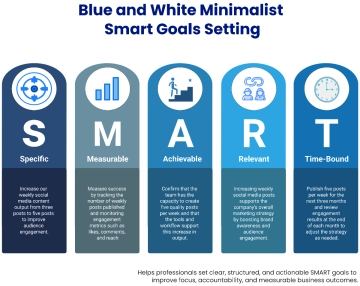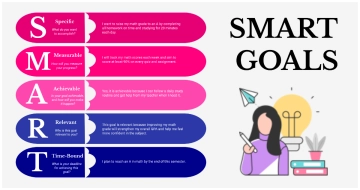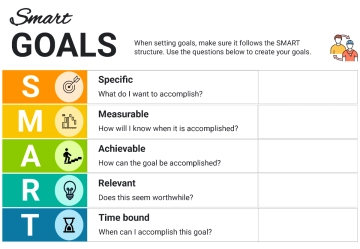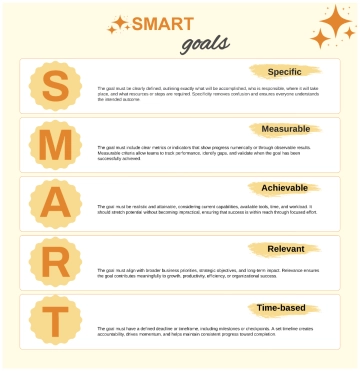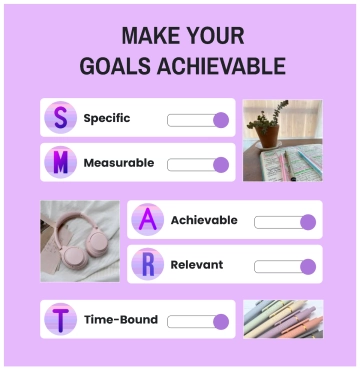Free SMART Goals for Fitness
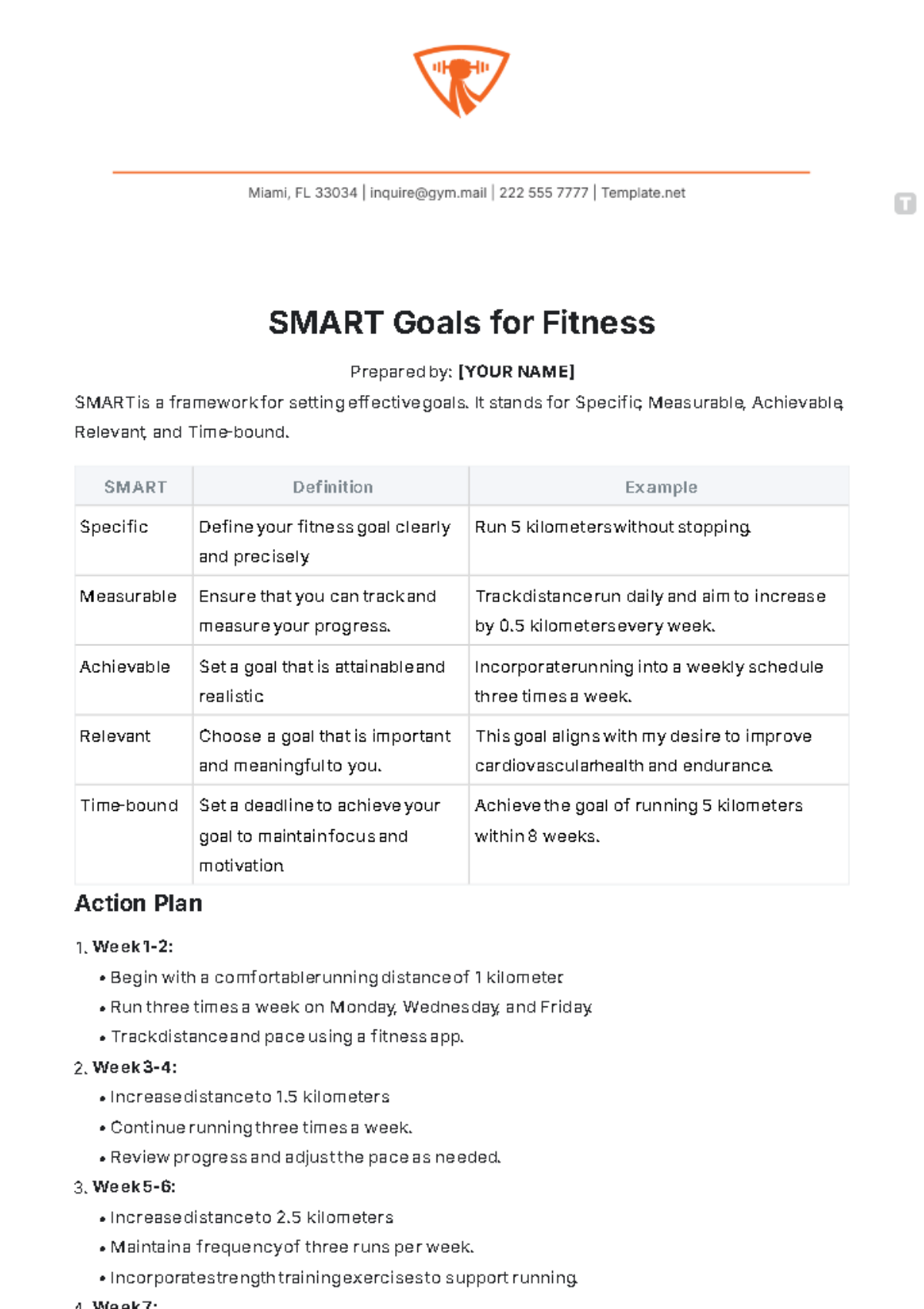
Prepared by: [YOUR NAME]
SMART is a framework for setting effective goals. It stands for Specific, Measurable, Achievable, Relevant, and Time-bound.
SMART | Definition | Example |
|---|---|---|
Specific | Define your fitness goal clearly and precisely. | Run 5 kilometers without stopping. |
Measurable | Ensure that you can track and measure your progress. | Track distance run daily and aim to increase by 0.5 kilometers every week. |
Achievable | Set a goal that is attainable and realistic. | Incorporate running into a weekly schedule three times a week. |
Relevant | Choose a goal that is important and meaningful to you. | This goal aligns with my desire to improve cardiovascular health and endurance. |
Time-bound | Set a deadline to achieve your goal to maintain focus and motivation. | Achieve the goal of running 5 kilometers within 8 weeks. |
Action Plan
Week 1-2:
Begin with a comfortable running distance of 1 kilometer.
Run three times a week on Monday, Wednesday, and Friday.
Track distance and pace using a fitness app.
Week 3-4:
Increase distance to 1.5 kilometers.
Continue running three times a week.
Review progress and adjust the pace as needed.
Week 5-6:
Increase distance to 2.5 kilometers.
Maintain a frequency of three runs per week.
Incorporate strength training exercises to support running.
Week 7:
Increase distance to 4 kilometers.
Run three times a week, focusing on maintaining a steady pace.
Week 8:
Achieve the goal of running 5 kilometers without stopping.
Evaluate performance and celebrate achievement.
Accountability
Weekly Check-ins:
Schedule a weekly review of progress every Sunday evening.
Assess the distance covered and any difficulties faced.
Fitness Buddy:
Partner with a friend or join a running group for motivation and support.
Share weekly goals and progress updates.
Fitness App:
Utilize a fitness app to log workouts and track progress.
Set app reminders for scheduled runs.
Notes
Warm-up and Cool-down:
Include a 5-minute warm-up before each run and a 5-minute cool-down afterward to prevent injury.
Perform stretching exercises to maintain flexibility.
Hydration and Nutrition:
Stay hydrated and maintain a balanced diet to support endurance and recovery.
Consider consulting a nutritionist for personalized advice.
Adjustments:
Be prepared to adjust the plan if necessary due to unforeseen circumstances such as illness or injury.
Prioritize rest and recovery if needed.
Progress Tracking
Daily Log:
Record distance run, time, and any observations or challenges faced in a daily log.
Use this log to identify patterns and make necessary adjustments.
Weekly Summary:
Summarize weekly progress, including distance achieved and any deviations from the plan.
Review achievements and areas for improvement.
Reflection
Post-Goal Review:
Reflect on the overall progress and effectiveness of the SMART goal.
Identify strengths, challenges, and lessons learned from the experience.
Next Steps:
Set new fitness goals based on the achievements and insights gained.
Continue to build on the progress made to further enhance fitness levels.
- 100% Customizable, free editor
- Access 1 Million+ Templates, photo’s & graphics
- Download or share as a template
- Click and replace photos, graphics, text, backgrounds
- Resize, crop, AI write & more
- Access advanced editor
Achieve your fitness aspirations with the SMART Goals for Fitness Template from Template.net. Fully customizable and editable in our Ai Editor Tool, it’s perfect for personal trainers, fitness enthusiasts, or anyone committed to a healthier lifestyle. Stay motivated and track your progress with this essential fitness planning tool. Get it now!
